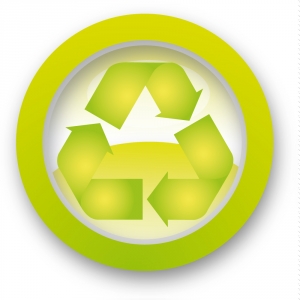Could Recycled Wastewater Provide a Solution for Potable Water
Water is essential for all living things on Earth, but many worry about whether we have enough potable water to support the entire population. Although two thirds of the Earth’s surface is covered with water, the reality is that less than 1% of the 326 million trillion gallons is usable. Additionally, some areas have an abundance of freshwater while others lack adequate amounts. As many states, particularly the Southwest and Texas struggle with ongoing droughts, it has become even more pressing for us to consider alternative methods of reusing and conserving our current water supplies. Many consumers are aware of basic water conservation methods such as not running faucets when brushing teeth, using water efficient toilets, opting for showers rather than baths and avoiding using wasteful sprinkler systems, but unfortunately these measures may not be sufficient to ensure that everyone has access to adequate supplies of potable water throughout the whole year.
The Technology to Produce Potable Water From Wastewater
According to a recently published Water Technology article, it may be possible to use recycled wastewater to address the needs of the existing water crisis. Many states overlook that wastewater can provide an excellent source of almost 100% reuse. Fortunately, some states have recognized this potential, with Southern California leading the innovation for large-scale projects including converting wastewater into potable drinking water.
Currently, there are technologies for potable reuse, which are more comprehensive than conventional water treatments. While these processes begin with wastewater, they can ultimately process and produce a higher quality drinking water compared to the conventional treatment plant that begins with a “clean” surface water.
These processes use multiple treatment configurations to effectively remove all chemical and microbial contaminants. This includes both bio-chemicals and industrial contaminants and is a vast improvement over conventional water treatment plants which are unable to offer this level of water filtration.
Could Wastewater Provide a Viable Option?
The main concern with wastewater is that it typically contains phosphorous nutrients, nitrogen, biosolids used in the agricultural industry. There is also the potential that it can contain grease and oils. There is a stigma among consumers that wastewater as potable water will not be palatable or safe. Fortunately, technology is available which can convert even highly contaminated wastewater into a high-quality safe drinking water.
In order to effectively implement this type of technology, it will be necessary to overcome the psychological stigma and perception of drinking recycled wastewater. Consumers will need to be educated as to the reliability and safety these filtering processes. Once this is perceptual barrier is overcome, it could become a viable option.
As more and more consumers are becoming aware of the potential contaminants contained in tap water, domestic water filtration devices are showcasing the rapid developments within the industry. After all, if it is possible to remove harmful contaminants and bacteria with a countertop jug or under sink device, the possibility of recycling wastewater should become an even more tempting reality and a viable option for future water conservation.
About The Author:
Greg Scott is President of Valparaiso based Miracle/EcoWater Systems, the premier water conditioning company in Northwest Indiana serving the Lake, Porter and LaPorte County areas. A 3rd generation water treatment professional, Greg grew up in the family owned business started by his grandfather in the late fifties. He has made water treatment his life and under his direction and high-standards, the company’s water treatment experience, knowledge, and products are unrivaled in region.
Back to
